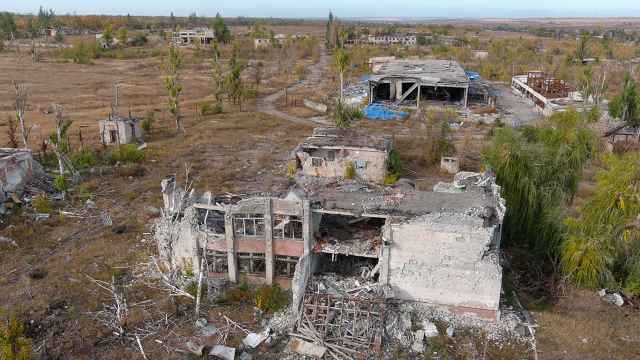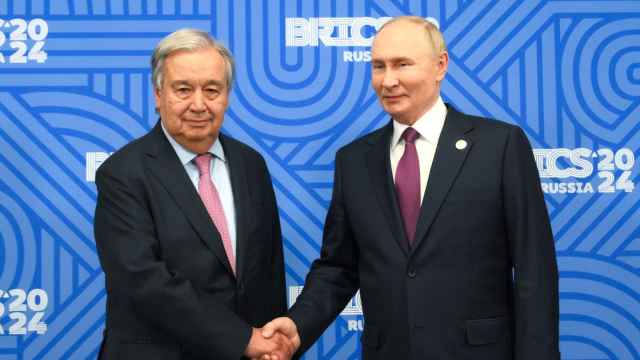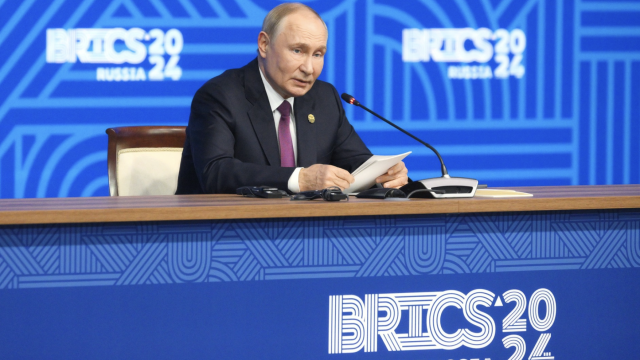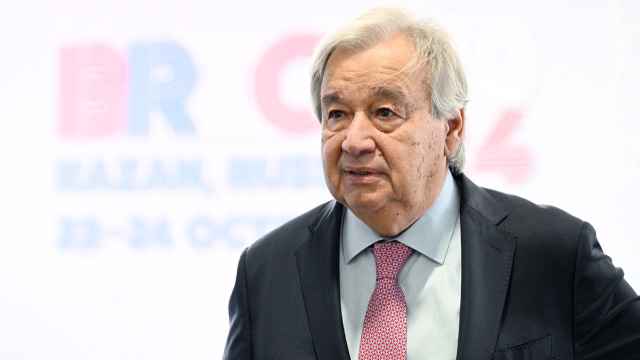Teenagers, elderly people and even prisoners are plugging drastic holes in the Russian workforce created by people being recruited into the army or fleeing the country.
The war in Ukraine has led to a shortage of around 1 million people in Russia’s labor market, according to independent demographer Alexei Raksha.
This includes between 300,000 to 500,000 who were recruited to the army in last year’s mobilization, and at least half a million more who have left the country since Russia’s invasion of Ukraine.
Fewer and fewer foreign workers are also arriving in the Russian Federation, while many who are already in the country are reportedly considering returning to their homeland.
Raksha, who coordinates activists involved in trade union organizing, said that many of the young men who have not yet been mobilized are also fearful that companies will hand them over to the Ministry of Defence. As a result, they’d rather work in the shadow economy or be self-employed than seek legal work.
Their fears are understandable — many Russian employers are directly involved in mobilization and conscription for military service.
Since last year, businesses have been required by the Defense Ministry to keep military records of their employees, and regularly receive requests to ensure their employees’ attendance at the military registration and enlistment office. A similar system operated in the U.S.S.R. and wasn’t abolished formally.
Those who work in this way began to faint
In a letter published on the Sisyphus of Labor Telegram channel, an anonymous employee at a defense plant wrote that men are being tricked into believing working will exempt them from having to join the army.
They said: “With the beginning of mobilization, the plant received the authorization to exempt workers from active duty, and, expecting an increase in their orders, began to hire everyone who didn’t want to go to the combat zone.
“But the new arrivals were in for an unpleasant surprise. Upon request from the authorities, the plant is obliged to strip 20% of their workers from their exemption. If there are new ‘waves’ [of mobilization], this will be done at the expense of those who have recently arrived.”
A Stakhanovist pace
Labor shortages are usually good news for workers. Wages rise, working conditions become more bearable, and workers who are discriminated against have more chances of finding employment. This is the case in Russia at the moment, especially at factories associated with state defense orders, where women, the elderly and people with disabilities are more in demand than ever.
But growth in employment and income comes at a high price. Many employees are being urged to work at a “Stakhanovist” pace, referring to the Stalin-era Stakhanovite movement named after a coal miner, Alexei Stakhanov, who was known for working so hard he produced more coal than was required and whose example was used by the government to exploit workers.
Employers do not only motivate workers with bonuses, but also force them to work overtime, although workers say this is often done in a manner that, at surface level, appears voluntary. Some plants that produce military equipment have introduced 12-hour working days and six-day working weeks.
Many employees are pleased to be earning more. Sergei, an employee at a factory for AvtoVAZ, a Russian state-owned automobile manufacturing company, said: “In our production, wages have increased. This is mainly due to the appearance of an absenteeism bonus [a bonus for not having missed any working hours].
“Those of us who didn’t quit, now work seven days a week and overtime. All this is paid at double the rate. The salaries are good. It’s realistic to get paid more than 150,000 rubles ($1,650). But the work, of course, is exhausting.”
The flip side of such initiatives is a rise in injuries and fatalities at work.
A contributor to the Sisyphus of Labor Telegram channel wrote: “In accordance with Putin’s instructions, we are given the right to spend our life at work. Every day you can stay for four hours more, and you are cordially invited to work 12 hours on your day off.
“You don’t have to go on vacation, just work and work... Those who work in this way began to faint and go on sick leave with chronic illnesses that have flared up.”
“A company’s management makes loud announcements: ‘We will work six days a week, 12 hours per day,’” Alexei says, “But the reality is different.
“In all companies I know well, overtime remains voluntary, as there are not enough resources. A manager will say: ‘Everything is for the front!’ But the foreman will tell workers: ‘It won’t be like that’.”
Children at work
Another clear indicator of the militarisation of labor relations is the exploitation of teenage labor, including in military production. Russians were well aware this happened during World War II, but it seemed unimaginable in the present day until the outbreak of the current war.
“Defense enterprises in Omsk [a city in eastern Siberia] cannot recruit workers and are working on [recruiting from] schools. Students who have completed the ninth grade [who are 14 or 15 years old] are promised employment after a year of study at a technical school,” notes Alexei.
Similar is happening in other regions. For example, in Tatarstan, an autonomous, ethnic republic in the Russian Federation, minors are assembling Iranian kamikaze drones as part of their schooling. Even more often, schoolchildren sew military uniforms, camouflage nets, stamp medals, and so on as part of their “patriotic education.”
Across Russia, demand for 14-18-year-old employees has increased by 60-70% this year, according to recruiters, facilitated by a new law allowing minors to sign work contracts without the permission of their parents or guardians. Children between the ages of 14 and 16 can work up to 24 hours per week in certain sectors, rising to 36 hours for those over 16. In Tatarstan, a new bill would allow teenagers aged between 16 and 18 to work in hazardous industries such as weapons production.
Capitalist Gulag
Prisoners are also increasingly being recruited into the workforce, with several large Russian enterprises having recently announced their readiness to “hire” detainees. These include OZON, an e-commerce company dubbed “the Amazon of Russia”; Uralvagonzavod, a battle tank manufacturer; and AvtoVAZ, which has severe staff shortages.
Although employers claim the working conditions of prisoners are the same as civilian employees, up to 75% of their salaries can be withheld by the state. This means, in practice, many prisoners are victims of slave labor.
The authorities have high hopes for further prison labor. President Vladimir Putin recently approved the replacement of imprisonment with forced labor for 100,000 convicts, and Deputy Prime Minister Marat Khusnullin is promoting the idea of replacing migrants on construction sites with prisoners.
You are cordially invited to work 12 hours on your day off
But such a practice is unlikely to become widespread, as tens of thousands of prisoners have already been recruited to fight the war in Ukraine, which has created problems for the prison industry. The businesses run by the Federal Penitentiary Service, responsible for correctional services, are so short of workers that they are “borrowing” personnel from ordinary factories.
Sergei, an AvtoVAZemployee, told openDemocracy he had not yet seen any prisoners in the factory where he works, but some of his colleagues have been sent to work in a factory run by the Federal Penitentiary Service.
He said: “Not so long ago, people from our production, including from our brigade, were sent to the Serdobsky Machine-Building Plant, in the Penza region. The plant [which produces spare parts] is affiliated with the Federal Penitentiary Service – there were a lot of jokes about this. [My colleagues] seemed to be happy with the pay. Working conditions, as I understand, were not much different from ours.”
What future awaits workers?
Russian workers who were not drafted into the war are still benefiting from the situation, according to openDemocracy's interlocutors. This makes them at least slightly more accepting of the protracted war.
“The level of emotions [about the war] has decreased significantly. News about the conflict has become a kind of background noise that you can pay attention to from time to time, or that you can not hear at all, if you focus on other things,” said Sergei.
“At defense enterprises, the majority [of employees] believe that as long as money is coming, there is nothing to complain about. Those who were against the war left their jobs for ideological reasons or out of fear. In general, at non-defense companies, the percentage of those who are against [the war] is higher. I get a sense that 20% of people everywhere are for the war, 15-30% are against it, and the rest are trying to ‘stay out of politics’,” Alexei says.
But what will happen in the future, when the fighting ends or the authorities pursue a new wave of mobilization? Pavel Kudyukin, a veteran of the left democratic and trade union movement in the late 1990s, believes the demobilization of the army and the post-war conversion of military production could provoke an increase in unemployment as thousands of men return to Russia, sparking an explosion of social discontent.
An unpleasant surprise may await the Kremlin the next time it tries to replenish its depleted reserves of “cannon fodder.” The effect of a new round of mass mobilization might be similar to the effect of a general strike: men of working age will be pulled out of their workplaces en masse and there will be no one to work.
This article was first published by openDemocracy Russia.
A Message from The Moscow Times:
Dear readers,
We are facing unprecedented challenges. Russia's Prosecutor General's Office has designated The Moscow Times as an "undesirable" organization, criminalizing our work and putting our staff at risk of prosecution. This follows our earlier unjust labeling as a "foreign agent."
These actions are direct attempts to silence independent journalism in Russia. The authorities claim our work "discredits the decisions of the Russian leadership." We see things differently: we strive to provide accurate, unbiased reporting on Russia.
We, the journalists of The Moscow Times, refuse to be silenced. But to continue our work, we need your help.
Your support, no matter how small, makes a world of difference. If you can, please support us monthly starting from just $2. It's quick to set up, and every contribution makes a significant impact.
By supporting The Moscow Times, you're defending open, independent journalism in the face of repression. Thank you for standing with us.
Remind me later.






